David Stuart is widely regarded as one of the foremost drugs and sexual health experts for the LGBT community in London and the UK. QX spoke to him last summer about the events surrounding gay men’s drug use and health issues, and here we present our conversation…
By Patrick Cash
Okay, we’re ready to go.
PrEP has been proven to work in a couple of different communities, the latest one in Bangkok was a study in injecting drug users: it was the first time it was properly studied in that group and it was found to be successful in reducing HIV infections. But heroin injectors in London (a very low percentage of whom are LGBT) have very good access to services; you could stop any heroin injector you find on the street around here, and they could take us on a tour of their world, they’ll show us where their local drug service is, where to get clean needles, and how to inject safely. But pop next door to your local ChemSex party, and ask a gay guy the same questions, and he’ll have no idea about where to access support, where to get clean needles or safer injecting information; chances are, he’ll never have actually injected himself, but allowed his shags to inject him instead. So it’s a group at much higher risk than the group the PrEP study focused on.
I remember hearing that gay men are using different needles but sharing the same water so making ‘schoolboy’ errors with their drug and injecting use?
People know to use clean needles, I think everyone knows that, but of course someone injecting heroin in the street is one thing, but the high from crystal meth is very different. The high from heroin is kind of a dissociative, the high from crystal meth is kind of a disinhibitor, so they have different effects. So the high from crystal meth is ‘wow, it’s really powerful, and you don’t care and nothing can hurt you and you’re invulnerable’; of course you stay awake for an average of three to four days, and so if you have twenty needles and you’re sharing them with three people at your party and they all run out at the second day and you’re twatted, and you know you have to go out somewhere to find clean needles, you’re not going to go. So you are going to reuse them. There is that but there’s also things they don’t know like if you’re using boiled water to mix the chems in, to draw your “slam” out of – they sometimes use a shotglass, and sometimes they mix the Tina in there to turn it into a liquid form; they might use different needles but they’re using the boiled water from the same glass. There’s just so much ignorance. There’s that and a whole lot of other things you can catch Hep C from – if you have cracked lips (which many people do on the third day up), when they’ve been rimming arses and stuff, and some of the pipes that they smoke might be a little cracked, so they’re leaving droplets of blood on the pipe and the next person shares the pipe and you can catch Hepatitis C that way. There’s a whole wealth of stuff that this kind of group need access to information for because LGBT people have never injected before, it’s always been about ecstasy and cocaine.
Why do you think the injections have suddenly arisen in recent years?
Why? Because it’s there. Crystal meth is relatively new, it’s now normalised and available, you can get it on Grindr, you can get it on BBRT; but it wasn’t before, it wasn’t really around. If you offer the average gay guy heroin, a dissociative, it doesn’t really give him the high he’s seeking – people use drugs to serve the purpose they need addressed. A person like a homeless runaway guy, who’s traumatised maybe, experienced abuse, or low self-esteem, or post-trauma or something like that, they are more likely to seek a dissociative; they need to numb out, in the same way that an alcoholic needs to not think and not be aware. That’s not the main problem that our gay community has; they need a drug for a different purpose and that purpose is tied up with their relationship to sex. It’s tied up with fear and rejection. Too many gay guys are in bed, but not feeling horny when they’re sober. It’s tied up with their sex being about HIV – gay sex is about death, it’s about disease, it’s the naughty sex, it’s historically the sort of sex that is done in dark places like Hampstead Heath or cottages. Historically it was illegal, historically it was a mental health disorder; it’s been a crime; it’s the sex for which you don’t take your partner home to sleep in your historical bedroom, under your parents roof. It’s the sex you don’t want your Mum and Dad imagining. Our parents might comprehend that sex is part of your sisters marriage, but all they’ll picture when you and your partner are sitting in front of them, is frankly, shit on dicks (an extreme example). Sex is really complicated for a lot of people, so to find a tool or a drug that taps into that, makes you feel ‘ah, yes, I’m horny and I’m allowed to be, I like getting fucked and I’m not afraid to say it, I like being a bottom, I’m a pig fucker’… it’s a real relief. We’ve got these gay lives where there’s the “real world”, where you act for your parents, and you act straight, (even though they know you’re gay); you’re one of the good gay guys, you’re not slutty or promiscuous. And it’s the same when you’re going to school or to work; you’re acting straight and performing, performing, performing; and when you’re at home as a child you’re performing, fearing being “found out”; and so then you grow up and you’re a real person, respectable and responsible with your job and trying to be a nice gay, except that you like dirty kinky sex and you know it; and so rather than put your hand up and say ‘yeah, I’m an accountant and I’ve got a boyfriend and all this but I love getting shagged rotten on the weekend and having dildos up my bum’. It’s hard reconciling these two things; so they split and disappear into this little bubble of a world where they can be the “real me”, where they can pretend that this acting out doesn’t exist and there are no consequences; but of course on Tuesday there are consequences from that behaviour. So when they’re down there thinking ‘this is not the real me, I’m doing what I really, really like, it’s secret, and I don’t need to use condoms, it doesn’t count, it’s separate’, it’s a psychological coping tool – it’s called splitting. So the job for a worker would be to integrate those two personalities, and give gay men the permission to be horny, to put dildos up their arse; but that those things are okay, rather than needing drugs to give themselves permission to enjoy these things.
What is happening with relation to funding changes about this then?
I work in drugs. Historically. And drugs has always been divided into boroughs. One of the reasons we have this syndemic or epidemic now of crystal meth/GBL/Mephedrone, HIV and Hep C, is because drugs have always been divided by boroughs; if you were using drugs and you showed up to your GP or whoever and said ‘I want some help with drugs’, they Google the local borough where you live and send you there. If you wanted to go to the one down here at the end of the road where there’s gay people and where they understand crystal meth – sorry you can’t go. You’ve got to go to your local borough, even if it’s in, for instance, Haringey. If the gay men who are injecting drugs want to go to a drugs service and they say ‘oh my god, I’ve stayed awake for three days, and I’ve been doing this for the last six months and I don’t know why I’m doing it, and when I do, I really do harm to myself; I’m getting fisted by three men, and I still have a good time but I don’t understand why I’m doing it’ – do you want to say that to someone in an outer borough who’s straight and who has no idea about it? You’re not going to go. So what you’re going to do is you’re not going to get help, and you’re just going to carry on creating harm to yourself and others. And that’s a mess. It was time someone said ‘this is not good enough”. It’s too lazy to sit in a drug service and wait for people to say ‘yes I think I’m ready for help’’, when these same people are accessing sexual health clinics very regularly, perhaps (quietly) asking for help with their sex lives. The difference between heroin injectors where it’s not a sexual thing, and the Tina/Meph injectors where it is, is that they’re accessing the sexual health clinics, which are pan-London so you can go anywhere you like. Gay men love their sexual health clinics, though have poor experiences with their GPs, and their NHS psychiatrists and drug services; but they do love their sexual health clinics and they’ll happily tell them anything. Sexual health clinics are really good at gay stuff, they always have been. So gay men are more likely to disclose drug use to their sexual health worker, in which case they’d then be referred to a drug service. At 56 Dean street, we wanted to provide the full treatment on site; so my new role as a full-time drugs worker at 56 Dean street enables us to provide the full sexual well-being experience, all at the same place, no referrals, or bussing around town to different addresses. It also helps us to build upon the success of the CODE clinic, just for gay men who have sex on drugs, where we work in partnership with Antidote, the LGBT drug and alcohol service. Get your Gonorreah sorted, get your PEP if you think you’ve been exposed to HIV; get your Hep C test if you’ve been sharing a douche with someone at a sex party… and have a chat with a drugs worker about sober sex, or about that scary third day up you had on drugs last weekend, or to be sure you’re being as safe as possible with your Chem use. No more waiting in a waiting room with heroin injectors at some hetero-focused clinic at the end of the Northern line. Guys visiting our clinic can get in touch with when they last had a relationship which sometimes might be more than a year, perhaps because ChemSex has taken priority. Some even get a bit teary-eyed thinking ‘oh, I haven’t had that kind of intimacy for ages’; our job is to help guys to make some changes around that. Guys who would never have considered going to a drug service, can find themselves reflecting on what they want from their sex and romantic lives; suddenly they’re thinking ‘oh yeah, maybe I do want to make some changes’ and ‘maybe I do want to listen to the messages about looking after myself and others’ and so we’re providing a range of targeted care, in what I consider to be the right place. But the threat now is that there are some proposed changes to pan-London sexual health commissioning – it’s still being explored. So the guys that want to come to Code and see me, might have now to go to Haringey or Walthamstow for certain sexual health services, where there’s no drugs worker in the GUM clinic and they won’t get the right care and this problem we’ve got will get bigger.
And why are they changing it?
I think you have to ask Yusef about that. I think they’re doing it because they’re trying to do things right, remember that this problem with gay men and drugs and HIV and Hepatitis C, compared to the wider community, it’s actually a small problem. Now, to me it’s enormous, and now we’re seeing enormous rises in HIV and Hepatitis C so I think that Public Health England and the Home Office is starting to realise, ‘yeah, oh my god it is a bit bigger’; but it’s still relatively small. I think what they’re trying to do is do things right, do things better, I think it’s coming from a good place, it might be about money to be honest, but I’m not the right guy to ask, I hope I’m not wasting your time. Give Yusef a call. But I think it is a plan to – it should be that you can go in to your local place and get care, that makes sense, if you don’t know the whole situation, it makes sense that you should get public care. So they’re not saying ‘don’t go to Code, go to your local service where there’s no help’, what they’re saying is ‘let’s get the right help everywhere.’ It’s a bit challenging.
So in your opinion, as an expert and worker in the London gay men’s health drug scene, would the ideal situation be that all sexual health clinics had drug clinics attendant on them?
I agree with that entirely except that that’s not possible. In order to train up every sexual health worker in every local area in these unique trends; it’s a great idea, but it’s going to be costly, it’s going to take a long time and of course if there’s only one guy using drugs in Haringey – there’s not – but if there was, then I might train them twice a year and that person might not show, so by the time that person shows a year later, one person, they’ve forgotten everything they’ve learnt. It’s just not practical.
How do you see the best situation?
Everyone should be able to travel. Every minority group, every most ‘at-risk’ group, should be able to travel outside of their borough to find expert care. I want to repeat that sentence because that’s the most important one. Every minority group and every most ‘at-risk’ group ought to be able to travel outside their borough to find expert care. That will reduce HIV, it will reduce Hepatitis C, it will reduce drug use, it will reduce harm. It will improve general and sexual well-being. It’s the only way to go.
We’ve already touched partially upon why this syndemic has arisen, but I wanted to speak quickly on the idea of intimacy has you spoke of at the Vauxhall and I, can we just go over the idea of families being about love, and deceiving your families once you become sexual and start to hide your sexualities?
There’s no such thing as an ideal family, I know, but if there was, that’s where human beings learn about intimacy; things we learn as infants, we incorporate into our lives later on, from feeling love, to feeling worthwhile, to feeling safe and valued, tools for how to function, language, people’s expressions; we learn all this as children, and intimacy’s a very important one. In an ideal family we argue with our siblings but we love them; it’s where our hair doesn’t have to be perfect, we can lounge around at ease; it’s where our Mum and Dad annoy the hell out of us, but we’re accepted anyway; that is intimacy. But a lot of gay men, they weren’t doing that; they were pretending to their Mum and Dad that they were straight, or they were pretending at school so they wouldn’t get bullied; they were acting straight, they were trying not to act camp, trying not to act effeminate, performing all the time. It’s a hyper-vigilance about being discovered, about being rejected. That’s a very unhealthy way for a child to spend every minute of their young life, and it’s the exact opposite of intimacy, the exact opposite. And therefore these gay men and others are growing up without that tool that they can incorporate into their lives. Sex is about a hell of a lot of things, but it’s also about intimacy. Even if it’s just anonymous sex, that’s still an intimate thing, taking our clothes off and having sex and orgasms with somebody; you need some frame of reference to do it in any context, in any safe way, and many gay men have no frame of reference to incorporate intimacy into their sex and romantic lives. I mean gay men do have more sex and in different ways to the hetero-norm that we’ve seen on television, so we’re going to need all the tools to do it safely and well, including a childhood that is not spent being hyper-vigilant. We’re living in a world where HIV is real, where Hepatitis C is real, where harm is real, where sex is normalised, where you can go and get sex anywhere – you can go to a sex club on the corner of the street, every single night of the week, or use an app. We live on a scene that is highly sexualised; for instance, if somebody’s selling my brother toothpaste it’s going to be happy families in the bathroom at bedtime in their pyjamas; if they’re going to sell me toothpaste it’s going to be a naked man, of sorts; everything is sold to us with sex. So this is the world we’re trying to negotiate with no frame of reference for intimacy, and that might be directly responsible for the harm that we’re seeing with people using drugs as a tool; because they dis-inhibit us, they take away that hyper-vigilance, they take away that fear of being rejected; drugs give us the permission to be horny we often need.
And there’s no need for emotional connection?
No, that’s not right. Because they are getting an emotional connection, it’s just in a safe space, the drugs make them feel safe. If I want an emotional connection with you, a normal human being, I’m gonna be a little worried that you don’t like me, I’m gonna be worried that you find me fat, I’m gonna want to please you. It’s a sensitive area. And it’s probably appropriate to have some fears and there’s probably some tools that a sober person would use to do that, like communication, disclosing something personal to you and indentifying with you on something or other; and so we click and we form a connection, and then those fears we might have about an emotional connection just go away. But people aren’t making that effort, they’re hooking up with someone on a street corner, on Grindr, and they’re naked within thirty seconds of opening the door. They haven’t put that effort in. And so the tool they’re using to make that emotional connection possible is drugs, which take away all your fears. You’re not going to reject me, I’m invulnerable, I’m fabulous, it’s about sex – yeah, in a sense you are right, because we don’t need to connect, because I’m just aware of my dick and my arse and I want them pleased, I’m aware of your hotness, and any sense of us connecting, it’s there but it might not be that important. But more importantly than that, we’re fearless on drugs so we can do all this stuff, fearless about disease, rejection, fearless about harm, fearless about being accepted, fearless about being rejected for being fat, our penis’ not working, of not being interesting or good-looking enough, being rejected… all that stuff.
Just to finish off, a couple of personal questions: how did you get into with drugs counselling?
I began volunteering; I think it was about eight years ago. I am a gay man, I’m as aware as the next guy of what hooking up is like and how normalised drugs are on our scenes, and I was also aware that the drugs sector is mostly about heroin and crack and homelessness and crime and I was a little concerned about what was going on; I had some personal experience that made me want to address this, so I started volunteering at the LGBT drug and alcohol service –
Which was Antidote?
Antidote, not at London Friend at the time.
How long has Antidote been going for?
Antidote’s been going over ten years, down at Turning Point in South Westminster. It’s now moved to London Friend, but I started volunteering when it was at Turning Point. It was a pan-London service, it was open to all LGBT people – at the time it was mostly about ecstasy and cocaine, poppers maybe, but I wanted to volunteer and help the service address those new problems.
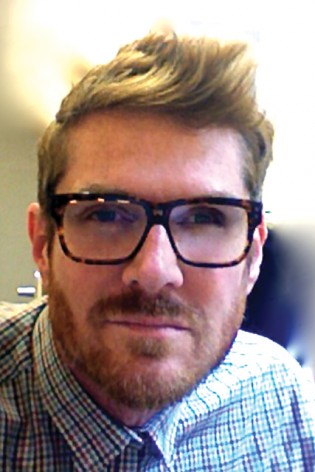
Why do you think the drugs have changed?
The reason they became popular is because they tap into that thing that gay men need. If crystal meth tapped into homelessness.. if homeless people needed something to help them with those issues.. if crystal meth was the right one – they’d be using it. In fact they are in America and other countries. It’s just a rare convergence of circumstances, crystal meth is incredibly expensive, (the cheaper) mephedrone began appearing in London, and that may be slowing the uptake of Meth use outside the gay populations. When gay men around the world use crystal meth it’s for sex nearly all the time, but when straight men use it, it’s not about that, it’s nearly always associated with homelessness, crime, poverty.
So in that way, it’s used as a dissociative drug?
So people use the drug that suits their purposes, but some drugs aren’t good for certain purposes. Crystal Meth is good as a dissociative, it’s a better disinhibitor, and people use it for different things. If heroin facilitated sex, I think gay men would have adopted it a long time ago, but it doesn’t, and gay men do have problems that they need dissociative drugs for, like anyone else. But we’re learning that the bigger problem gay men seem to need help addressing is their relationship to sex, which is complicated.
In regard to codependency; let’s take a heroin user for example; if their Mum doesn’t want them to die of an overdose on the street, or doesn’t want them to be really sick with withdrawal on the street corner where they’re suffering, sometimes the Mum gets into a cycle of paying for her son’s drugs. And that’s codependency: you don’t blame the mother. It may or may not be the right thing to do, though the mother would say it is because they don’t want their son on the street corner, experiencing withdrawals and exposed to all the harms of the world. But every time that she helps him, that’s one lesson that he doesn’t learn; in fact if he does suffer here on the street corner it’s a terrible thing but there are consequences to using drugs, and that’s how you learn; you learn by experiencing consequences. And so she’s enabling him. And so I would say that the community we’re living in is enabling it. I wouldn’t say it’s to blame or fully responsible, but I would say there’s a codependency of the way our scene works with magazines that normalise club culture – any guy that’s eighteen – no, let’s go back; he’s fifteen and he comes from Hertfordshire; his Mum and Dad are having a difficult time with his coming out, (they’ll be fine, it’s just an adjustment), but he comes to London to find his people, his gays, and before he finds a couple of architects in a relationship that have dinner parties and do interesting things and barbecues, he’s going to find a free gay paper which is going to send him to the bars and the clubs and he’s going to find a drug dealer – and that’s at fifteen. And so there’s a culture that normalises club use, drug use, alcohol use, body beautiful, celebrates porn-star sex… and not that it’s to blame, but it’s part of the enabling, larger picture.
David Stuart is in-house Drugs Advisor at gay men’s sexual health clinic 56 Dean Street in Soho.
https://twitter.com/davidastuart

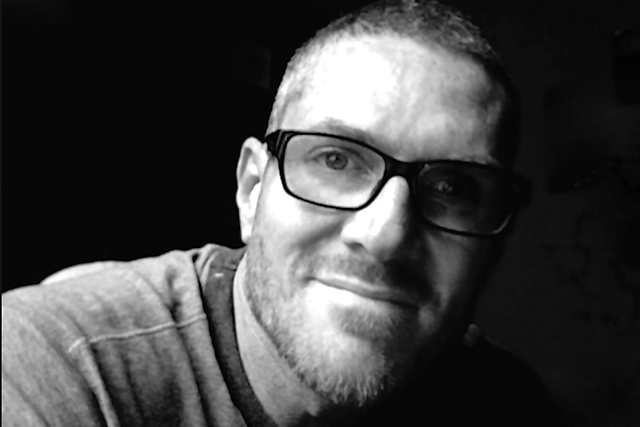
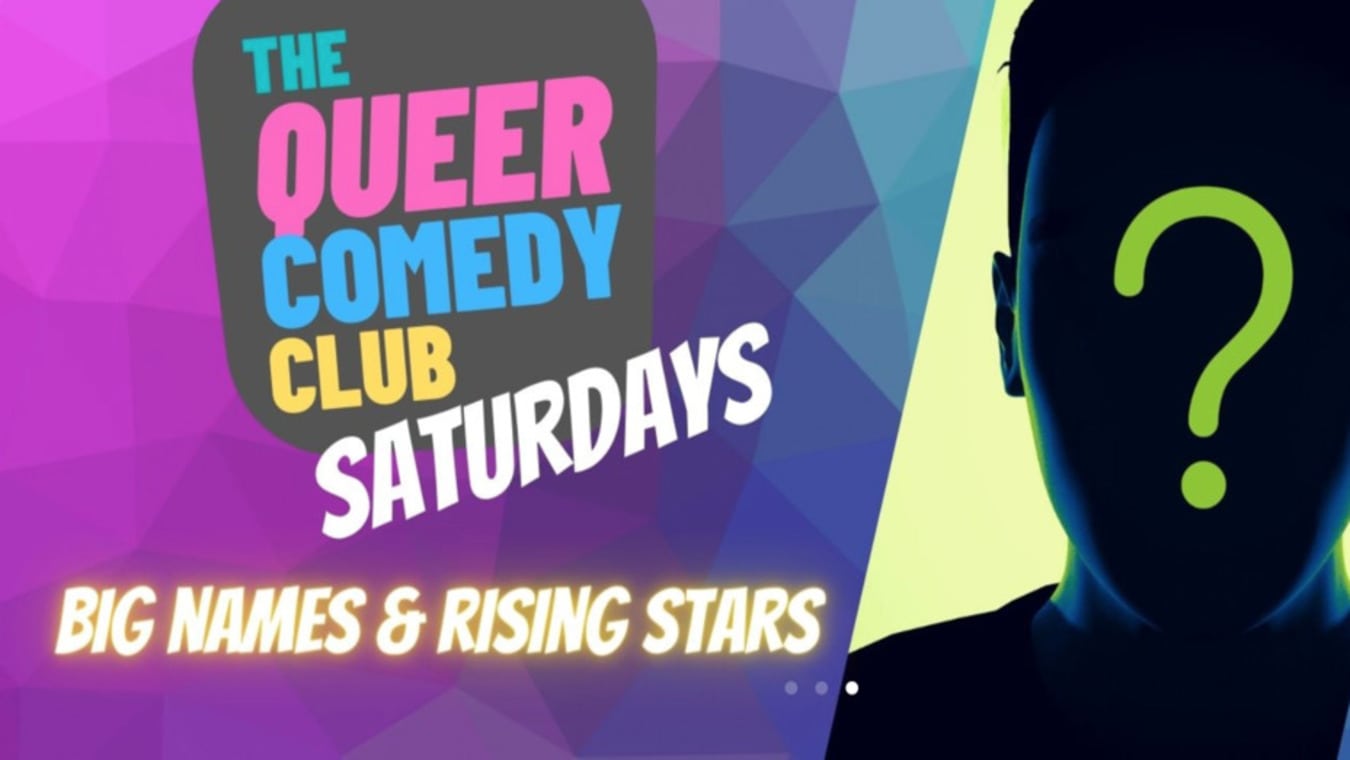
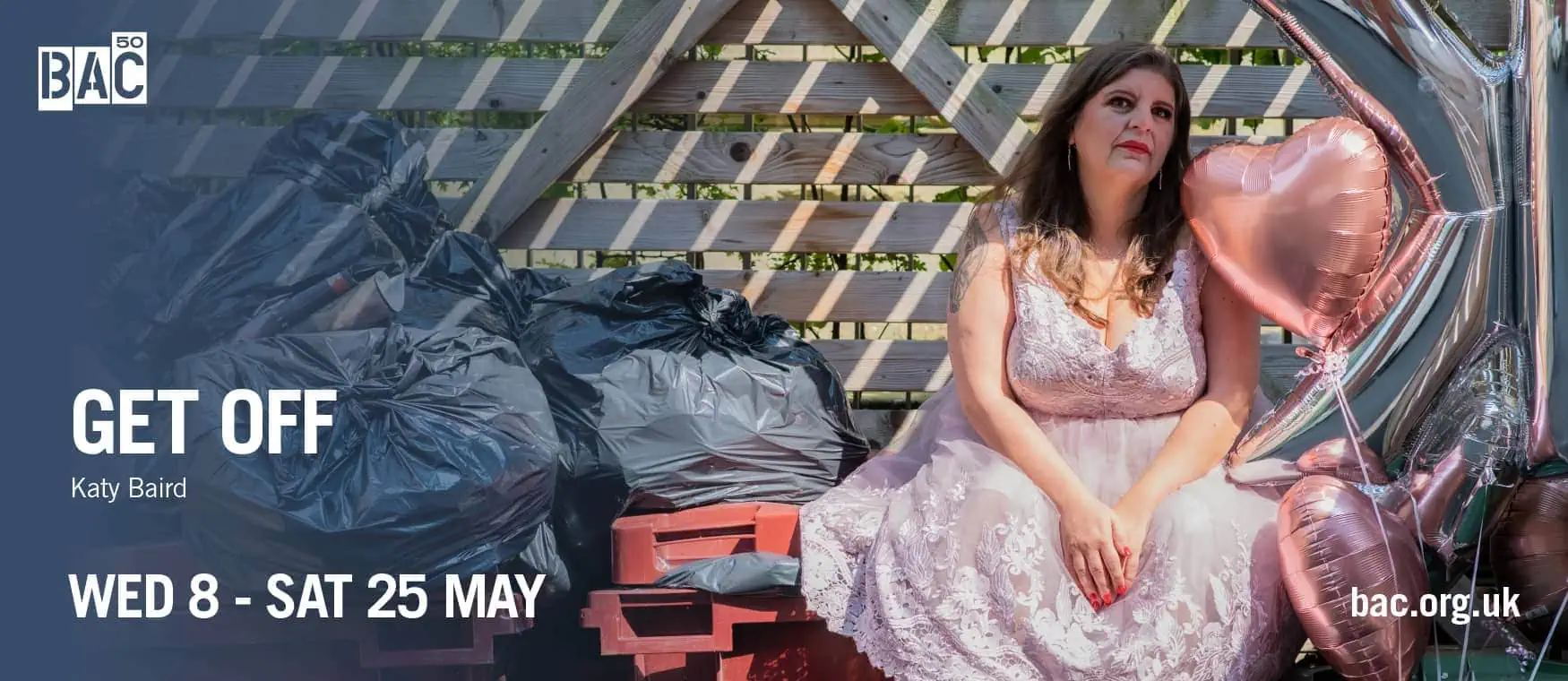


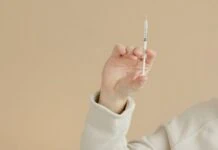





Great interview, and what a profound and insightful passage:
“In an ideal family we argue with our siblings but we love them; it’s where our hair doesn’t have to be perfect, we can lounge around at ease; it’s where our Mum and Dad annoy the hell out of us, but we’re accepted anyway; that is intimacy. But a lot of gay men, they weren’t doing that; they were pretending to their Mum and Dad that they were straight, or they were pretending at school so they wouldn’t get bullied; they were acting straight, they were trying not to act camp, trying not to act effeminate, performing all the time. It’s a hyper-vigilance about being discovered, about being rejected. That’s a very unhealthy way for a child to spend every minute of their young life, and it’s the exact opposite of intimacy, the exact opposite.”
SO many decision-makers, gay adults and straight adults AND kids would benefit from reading that, I reckon. And I wonder has anyone else identified their own talent for “splitting” (it really is a transferable skill), as I have recently? And trying to do something about it? Anything that helps you observe your own MIND more dispassionately: whether meditation, talking therapies or even just reading words of wisdom such as these has got to help…
I really enjoyed reading this. Thanks.
It’s about time we had this type of ‘one stop shop’ support in Soho.
The guy knows what he’s taking about.
Good job!
Hi Fagburn,
No, David was actually interviewed by me – Patrick Cash for QX. This conversation, that we had face to face in Soho, was for me to find out more about the chemsex effects on the LGBT community in London that was published in the magazine last September 2013, named ‘It Starts With You’: http://qxmagazine.com/feature/it-starts-with-you/
Maybe journalism is, as you say, ‘about challenging what people say’. But I personally believe that is only one facet of how the concept of journalism works, which of course is only at all viable if you actively disagree with the person you’re interviewing – otherwise you’re just being a pompous pedant. A more vital, valid approach to journalism, in my opinion, is to convey rich, detailed observations on a subject which the interviewee is expertly well-versed in through their work, to a community that in many areas needs to hear it.
This is why I made the decision to publish this conversation transcript here, especially after crystal meth and the gay scene have been in the national news last week.
Really well done. I can’t agree more. It is really realistic and representative of my sad and ugly reality. My congratulations.
This reads like he’s interviewing himself – presumably he was.
Maybe journalism is about challenging what people say, particularly when they talk nonsense like this fame-hungry posh fool…